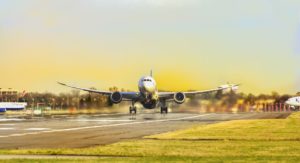
Saying the industry has entered a challenging, even threatening phase, leaders of Association of Asia Pacific Airlines (AAPA) member carriers have released a six-point resolution urging Asian governments to work with industry stakeholders in removing obstacles to sustainable growth.
The leaders passed the resolutions at the 63rd AAPA Assembly of Presidents meeting in Kuala Lumpur on November 22, 2019.
They said “the industry is now entering a challenging phase, with strategic development and profitability being threatened by a slowing global economy, political uncertainties and a multiplicity of operational constraints.”
Andrew Herdman, AAPA director general, said the emergence of Asia as an economic powerhouse has created a sense of optimism for the region’s air transport industry. “However, success cannot be automatically assured without robust efforts to support carriers, who continue to face an ever increasing number of challenges to achieving strategic development and growth,” he added.
He urged governments to adopt “a much more positive attitude towards the industry, and work meaningfully towards removing obstacles that hinder the sustainable growth of the industry.”
The Assembly passed resolutions covering the environment, cybersecurity, infrastructure, slots, passenger facilitation, and taxation.
Infrastructure issues
On infrastructure, AAPA said there is a clear need for governments to ensure that airport and air traffic management (ATM) infrastructure development keeps pace with growing demand.
It said failure to modernize airspace and improve capacity and efficiency of ATM infrastructure and services “will result in increasing congestion and flight delays with adverse consequences for the travelling public and the wider economy.”
Promoting sustainable aviation
On the environment AAPA called for closer collaboration in addressing aviation’s climate impact and promoting sustainable aviation.
“The Association sees it as being critical to ensure the integrity of the ICAO CORSIA scheme and avoid the duplication of requirements being placed upon international aviation CO2 emissions,” said the statement.
“AAPA calls on governments and operators to work together towards the effective implementation of CORSIA in a way that is fair and equitable, avoids competitive market distortion, and recognizes the interests of developed and developing nations.”
The ICAO CORSIA scheme agreed in 2016 is now being implemented worldwide, with full emissions reporting by all international carriers having begun in January this year.
On cybersecurity, the AAPA urged the establishment of a global and regional approach to cybersecurity built on trust and transparency, and the enhancement of cyber threat awareness, promotion of cybersecurity culture, and strengthening of cyber resilience.
On air travel accessibility, the assembly lamented how the proliferation of different policies or requirements to facilitate air passengers with disabilities has “resulted in overlapping and conflicting entitlements resulting in operational complexity and confusion for air passengers.”
“AAPA calls on governments to work closely with other aviation stakeholders towards a shared long term vision of harmonised international practices on the facilitation of passengers with disabilities, with the aim of achieving a more inclusive air transport system.”
Slot allocation
On slots, the association noted that the increasing number of capacity-constrained airports around the world requires a process for allocating airport slots and that deviation from well-established global principles “can adversely affect the efficiency and predictability of air transport operations to the detriment of the travelling public.”
AAPA called for slot allocation to be managed in line with ICAO guidance and established international standards and procedures such as the Worldwide Airport Slots Guidelines, “recognising the benefits of a single, globally harmonised approach to slot management involving all stakeholders to optimise the efficiency and predictability of air transport services.”
Tax burden
Finally AAPA decried how airlines and the travelling public “continue to bear the burden of numerous taxes and charges imposed by governments, as well as monopolistic service providers and other agencies.”
It said recently introduced or increased taxes on air travel include Malaysia’s Departure Levy, the New Zealand International Visitor Conservation and Tourism Levy, and the various levies imposed by different governments such as France, Germany, the Netherlands and Switzerland, “often under the guise of environmental initiatives.”
Further, a number of airports are imposing or increasing passenger service charges as pre-funding mechanisms to finance future infrastructure facilities, it said.
AAPA renewed its call on governments to “refrain from increasing the burden of aviation levies in any form on international air travellers.”
